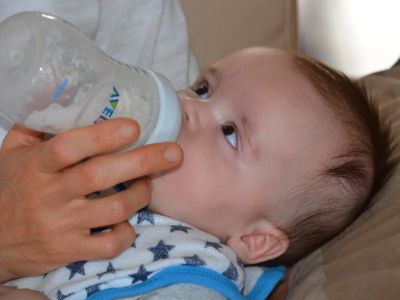How to Protect an Unborn Baby from HIV?

The human immunodeficiency virus (HIV) is a virus that attacks the immune system. Once HIV is in your blood, it kills the CD4 cells, which help your immune system fight diseases.
HIV is spread from infected body fluids, such as blood, semen, and breast milk. It’s a sexually transmitted disease because it is contracted through unprotected sexual contact with an infected individual.
HIV is the virus that leads to AIDS. People with AIDS get sick with diseases that the immune system normally can fight, like pneumonia and certain cancers and infections. It may take months or years for HIV to develop into AIDs.
What to do before getting pregnant to lower the risk of passing HIV to an unborn baby?
If you are planning to become pregnant, talk to your physician right away. Your doctor can talk with you about how HIV affects your health during pregnancy and your unborn baby’s health. Your doctor can work with you to prepare for a healthy pregnancy before you start trying to become pregnant.
Everyone living with HIV is recommended to take HIV medications to stay healthy. If you are thinking about becoming pregnant and are not taking HIV treatment, it is important that you begin, because this will lower your chances of passing the virus to your baby when you become pregnant. There are ways for you to get pregnant that will limit your partner’s risk of HIV infection. You can ask your doctor about ways to get pregnant and still protect your partner.

Tips to Reduce Your Baby’s Risk of HIV Before and After Birth
- Pregnant women who don’t need HIV treatment should take antiretroviral medicines during pregnancy
- Consult a doctor about the choice between cesarean delivery and a vaginal delivery
- Bottle-feeding your baby instead of breastfeeding
- After your baby is born, your doctor may prescribe antiretroviral drugs for up to four weeks
- Do not breastfeed your baby if you have HIV, as the virus can be transmitted through breast milk.
Taking HIV Medication during Pregnancy
Some medications for HIV aren’t appropriate to take during pregnancy. If you have HIV and become pregnant, contact your local HIV clinic. This is important because:
- Some anti-HIV medications can harm unborn babies, so your treatment plan will need to be reviewed
- Additional medications may be needed to prevent your baby from getting HIV
However, if you are taking HIV medication and you become pregnant, do not stop taking your medication without first speaking to your doctor. Always check with your doctor before taking any medicine when you’re pregnant.

HIV Treatment during Pregnancy
Treatment during pregnancy has two goals:
- To protect your health
- To help prevent passing HIV to your fetus
There are various combinations of drugs used to manage HIV infection. This is called a drug regimen. Anti-HIV drugs decrease the amount of HIV in the body. It will help you and your unborn baby lessen the risk to spread the virus.



